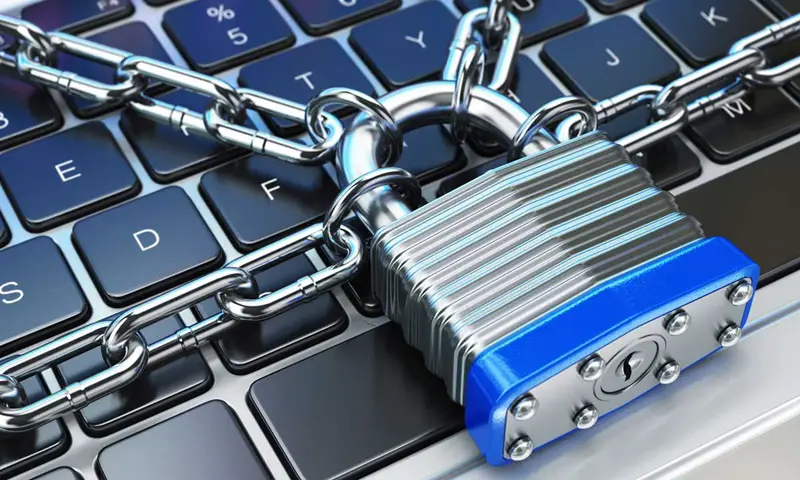We live in an age of ever-growing cybersecurity threats. As the digital frontier has continued to expand, cybercriminals have continuously evolved their tactics in order to stay ahead of police and cybersecurity specialists. In many cases, they have succeeded.
2017 has the distinction of being the worst year in the history of cybercrime. There were over 160,000 attacks on companies and organizations all over the world. Businesses lost over $5 billion because of the attacks. What’s worse? Most of them were completely preventable.
It’s more critical than ever that you protect your online data, and you can start with these five easy tricks to make your personal info more secure.

1. Disable the Save My Password/Credit Card Function
I get it. It’s a pain to have to type in your password each and every time you log on. It’s also tempting to save your credit data so you don’t have to whip out your wallet every time you make a purchase. But doing so opens your personal data to compromise and can lead to disaster.
Whatever browser you use, always disable these features before you start surfing. The time you spend retyping your password and credit card info is more than worth the time you’ll save trying to put your life back together if you get hacked.
[Read also: How to Manage Multiple Passwords]
2. Upgrade Your Password to Make it More Complex
That’s right: not only do I want you to make you type your password each time, but I also want your password to be more complex. The reason is that simple passwords are much easier to crack than complex ones. It makes them hard to remember, but it will improve your security.
Some tips you should follow include:
- Aim for 12 to 20 characters
- Use varying combinations of capital letters, lowercase letters, numbers, and special characters
- Avoid using birthdays, pet names, favorite bands, and any other information that’s commonly known about you
- Use a different password for each and every site
3. Set Up a VPN
Even if you didn’t know it, certain pieces of information about your browsing habits are public information. This includes the sites you’ve been on, the searches you’ve done, and any products you’ve browsed. Police and security organizations use this data to track cyber criminals. Businesses use it to send you ads. Hackers use it to steal your identity.
Anytime you’re online, especially if you’re using a public Wi-Fi network, you need to use a VPN. A VPN is a private network that routes your browsing data through a server, encrypts it, and then sends it onto the net. It makes it nearly impossible to see where the data came from, and what it says.
Setting up a VPN isn’t difficult, and one can be installed on nearly any device.
4. Get Anti-Virus Software and Keep it Updated
If you don’t have anti-virus software, your computer’s security may already be compromised, and you don’t even know it. Trojan viruses are often embedded in normal software and infect your computer after your download is complete. Trojans are commonly found in free software such as:
- Videos
- ROMs
- Music files
The scary thing about Trojans is that they won’t change the way your computer behaves. You’ll think everything is fine, but as you type, the virus is tracking your passwords, banking PINs, and network security keys.
The only way to keep Trojans and other malware off of your computer is with good anti-virus software. My personal recommendation is Norton, which is pricey, but by far the best on the market. Once you’ve got it, keep it updated. There were over 30,000 new variations of viruses that sprang up in 2017, according to CNET. As viruses evolve, so should your anti-virus.
5. Clear Your Browser Cache Once a Month
As you surf the Internet, your browser is creating a history of where you’ve been, what you’ve looked at, and what you’ve typed. Websites use cookies to remember your preferences, including passwords, advertisement preferences, and search strings. This makes it easy to revisit your favorite sites but also makes it easier to steal your data.
At least once a month, take the time to clear out your browser cache and clear your cookies. This does mean you’ll need to reenter your preferences each and every time, but it will bolster your defenses against cybercriminals.
[Image via: Google Images]
